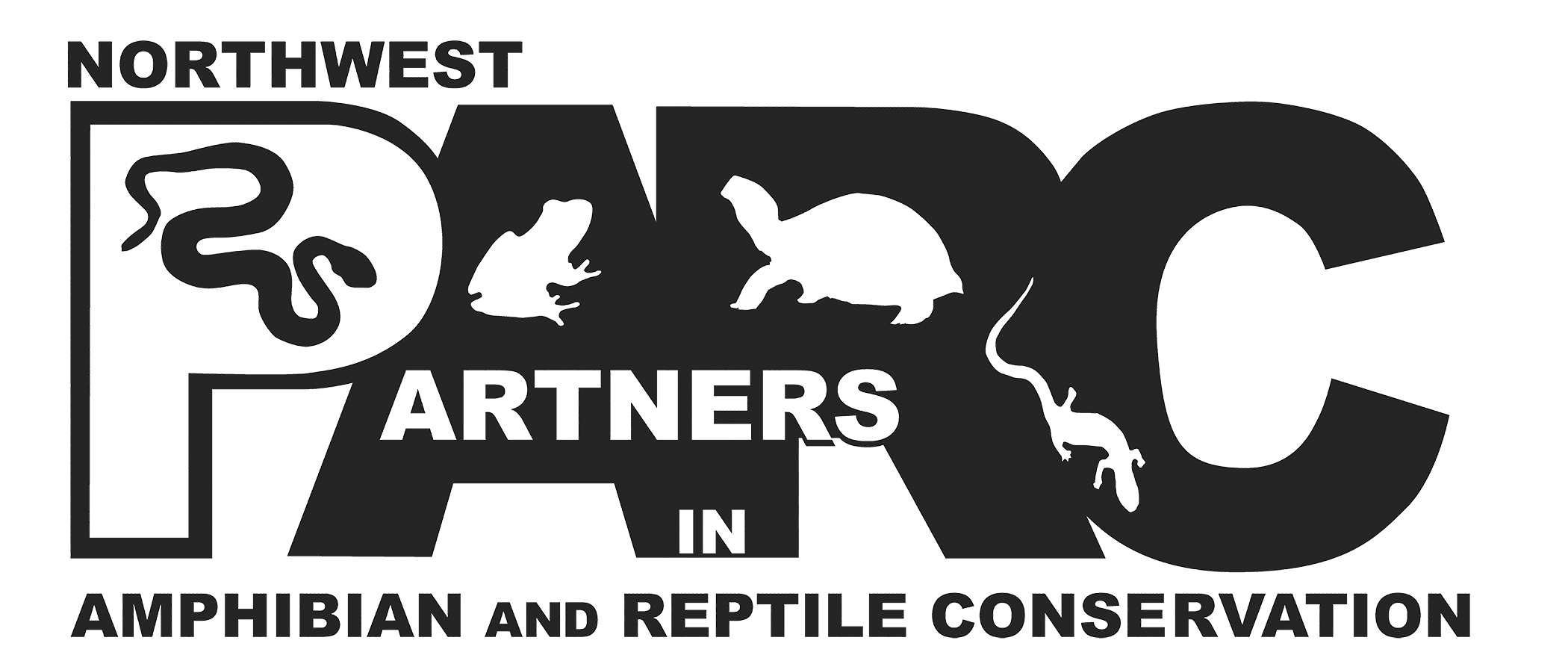NW PARC 2016 Annual Meeting: Conservation across Borders
NW PARC’s 9th Annual Symposium was held February 25, 2016, in Coeur d’Alene, Idaho, in conjunction with the week-long, annual meetings for the Washington and Idaho chapters of The Wildlife Society and the Society for Northwestern Vertebrate Biology.
Photo by Chuck Peterson
The symposium theme, Conservation Across Borders, brought together a number of people and organizations interested in protecting wildlife and habitats across borders. The symposium explored several perspectives and case studies pertaining to transboundary conservation and restoration mechanisms, examined current threats and policies surrounding legal and illegal wildlife trade, and highlighted the current understandings of the spread of endemic and exotic pathogens.
Jessie Bushell presentation (Photo by Chuck Peterson)
Jamie Reaser, executive director for the National Invasive Species Council, delivered the keynote address, “Protecting What Matters,” where she talked about how human values motivate people to care about those species that generally receive little attention and how storytelling that evokes strong emotions linked to such core values and beliefs can provide an effective means of shifting individual and societal norms to better protect the natural world. Both Charlie Justus (Idaho Department of Fish & Game) and John Goldman (U.S. Fish & Wildlife Service) shared many stories about the illegal movement of wildlife species into and out of the United States, while Mary Abbott of the Idaho Treasure Valley Herpetology Society offered a perspective on how herpetofaunal regulations affect the people who keep, care for, and rehabilitate amphibian and reptile species. Related to other aspects of conservation, Eric Gardiner (Washington Department of Fish & Wildlife) explained how PARC can facilitate important conservation work across national and international boundaries; Valorie Titus (Green Mountain College) shared the work and successes of the national citizen science program, Frogwatch USA; and Jessie Bushell of the San Francisco Zoo provided an uplifting talk on the great work being done to restore habitat for the western pond turtle in the Presidio, a former military base. Finally, very importantly, Dede Olson of the U.S. Forest Service gave an update on the latest understanding of important disease threats for herpetile species, including Bsal, the recently discovered chytrid fungus affecting salamanders. At the beginning of the day, Betsy Howell (U.S. Forest Service) and Kris Kendell (Alberta Conservation Association) provided an overview of PARC’s local, regional, and national efforts to conserve amphibians, reptiles, and their habitats. We wrapped up the day with a social at a local restaurant and pub.
Chuck Peterson and Jamie Reaser (Photo by Jamie Reaser)
During the joint meeting banquet, NW PARC awarded Chuck Peterson, of Idaho State University, NW PARC’s new Luminary Award for inspiring and influencing others for more than 40 years in the field of amphibian and reptile conservation in the Pacific Northwest.
NW PARC wants to thank once again all these great speakers for making the 2016 symposium such a success, and for generously sharing their time, enthusiasm, and good work with the rest of us! We also want to thank all the participants who came from the several Canadian and American federal and state/provincial agencies, non-profit organizations, universities, private consulting firms, and energy companies, all of whom asked crucial questions, shared their own stories, and contributed to the opportunity for all of us to make great connections for future collaborations. We would also like to acknowledge all the individuals, businesses, and various organizations that supported NW PARC with silent auction donations. Lastly, we would like to acknowledge out-going NW PARC co-chair Kris Kendell for his many hours of commitment to the chapter.
NW PARC will continue to work on a variety of initiatives in 2017, including the planning of a 2017 NW PARC event, adding content to NW PARC’s website, including an online summary of herpetological conservation projects in the Northwest, and supporting National PARC’s Habitat in Focus campaign and amphibian disease task team.




